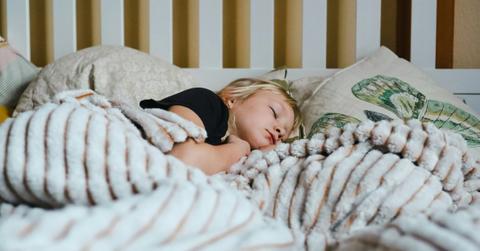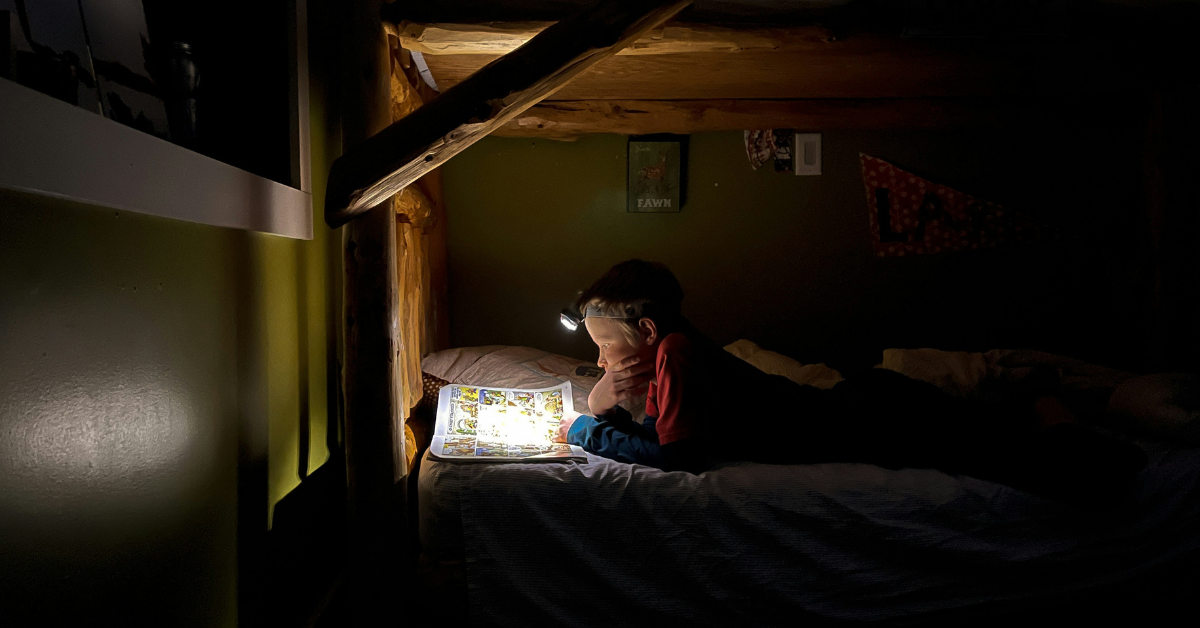Melatonin Is a Popular Sleep Aid but Experts Say It’s a No-No for Kids
Melatonin is typically sold without a prescription.
Updated April 24 2025, 10:41 a.m. ET

As parents and caregivers know, finding a way to get your child to get a good night's sleep is the holy grail. Not only does it help to catch up on your zzzz's as well, but it can prevent common morning meltdowns, which can be especially difficult when you're trying to get a houseful of kids and grownups to school and work on time.
That's why many adults turn towards melatonin for their children.
The sleep aid claims to be an all-natural sleep solution, designed to mimic the same hormones our body already makes. But, experts warn parents against dosing their kids with this popular OTC treatment due to the possible side effects. Keep reading to find out why melatonin is bad for kids.

Why is melatonin bad for kids?
A health advisory was issued in 2022, warning parents and caregivers to stop relying on melatonin supplements to get their kids to sleep. The information was shared by Harvard Health Publishing, and it highlighted some of the concerns medical professionals have about using the sleep aid.
First, they cautioned about the safety of using supplements in children, since these types of pills typically aren't regulated by the U.S. Food and Drug Administration.
That can be dangerous, since the American Academy of Sleep Medicine says that what, and just how much, goes into the pills may vary by manufacturer. This was illustrated by a spike in melatonin overdoses in children, which raised some red flags for medical experts.
Next, doctors warned that most children shouldn't use melatonin for sleep because they don't need it. Instead, parents should focus on helping kids creating the sleep cycle that works best for them.

That means keeping older kids and teens from napping during the day, and allowing younger children to drift off to sleep when they're ready.
Additionally, they say exercise, a calming bedtime location and routine, and reduced screentime can all help children fall asleep on their own, and more importantly, without relying on a sleep aid.
What are the side effects of melatonin?
When melatonin is used, the Children's Hospital of Colorado (CHC) says parents and caregivers should be on the lookout for certain side effects, which can include increased drowsiness during the day. Children who aren't getting enough sleep at night, or who are experiencing the lingering effects of melatonin in their system during the day, are more likely to show signs of poor cognitive and social functioning, as well as agitation.
Other side effects can include nightmares and night terrors, which can also disrupt sleep.
Lastly, CHC says that due to the lack of regulation, children could take more melatonin than they mean to, which could lead to an overdose or melatonin poisoning. According to the U.S. Centers for Disease Control and Prevention (CDC), 2.25 percent of all calls involving children that were made to position control centers between 2012-2021 were regarding melatonin ingestion.
The CDC also reported that there were two deaths tied to melatonin poisoning, and both of which occurred in children under the age of two. As you can see, while the sleep aid promises to help your little one get a good night's sleep, it's unclear at what cost.
This article is not meant as a substitution for medical advice, and if you have questions about your child's sleep habits you should reach out to their medical provider directly to assess the issue and find the source of the sleeplessness before attempting any over-the-counter fixes.